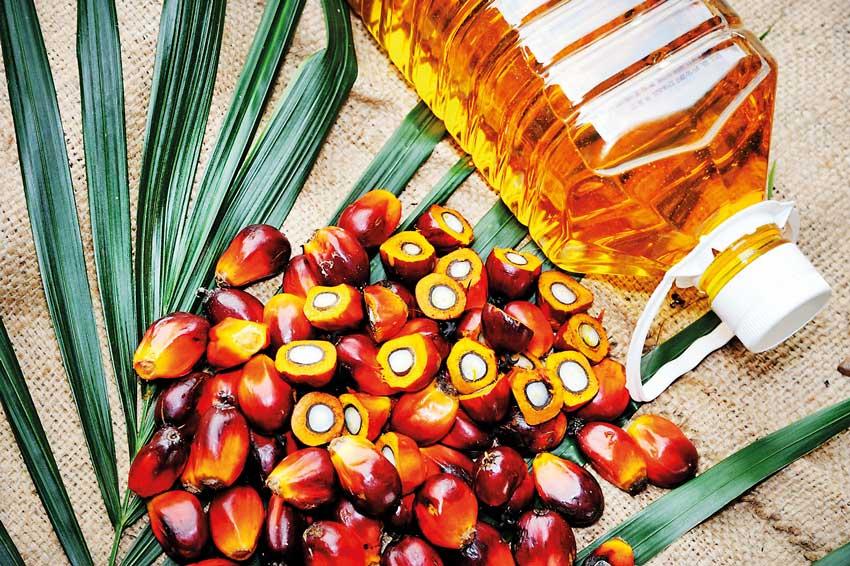10 Jun 2020 - {{hitsCtrl.values.hits}}

 The plantations industry continues to offer employment to about 140,000 directly employed and to almost 1.5 million dependents during the countrywide shut down, owing to the COVID-19 pandemic.
The plantations industry continues to offer employment to about 140,000 directly employed and to almost 1.5 million dependents during the countrywide shut down, owing to the COVID-19 pandemic.
The industry is now engaged in supporting the government further in achieving self-sufficiency in food by undertaking to cultivate large extents of short-term agricultural consumables, otherwise were imported earlier. The production of edible oils is very much part of it.
But ironically, the approvals are on hold averting certain Regional Plantation Companies (RPCs) in achieving their potential. The US $ 10 billion potential of the plantations industry in a country, which has a US $ 90 billion budget per year, must be understood at least by now.
This vast and hidden potential of the industry continues despite burning of factories and beheading of planters by a well-identified political party standing behind the current agitation as well.
This is another showdown of the ugly head of politics that ruined the national economy, especially during the last five years, from a 5 percent growth rate in 2015 to a 2.5 percent in 2019.
It must also be noted that whilst Sri Lanka is procrastinating without taking an economy-friendly decision on cultivation of oil palm, our immediate neighbour is planting the same crop on two million hectares that receives lessor annual rainfall than in the areas we plant oil palm in Sri Lanka.
It is also a fact that the laws that prevailed at the time of granting approvals should prevail when the time of planting as well.
However, despite the fact that the president has given a very clear directive to take a correct decision by weighing the pros and cons of the 60-year-old oil palm cultivation, despite the public protests, duly engineered by interested few, the authorities seem keeping quiet, ignoring the ironical fact that the Rs.500 million worth and almost two years overgrown plants are simply sitting in the nurseries, getting over matured further, whilst losing best weather for planting in the fields at present.
Not only the plants are getting more unsuitable to plant but also the land remaining fallow without the approval to plant and then the difficulty in offering work to the employees, are prominent issues standing tall amongst many other interconnected issues. It is also very surprising to note that the decision to cultivate oil palm on 20,000 hectares of land managed by the RPCs, is also owned by the government and all approvals to cultivate are also given by the government, despite the fact that the crop research institute has approved cultivation of oil palm, the ministry officials are also in favour of the crop and the Central Environmental Authority is also supportive of the planting of plants that are currently in the nurseries. The sustainable oil palm cultivation guidelines are also drafted.
The preventing cause seems to be fear of losing the votes of a few with the undue influence by certain non-governmental organisations (NGOs) trying to piggyback on certain illogical politicians, despite the sinking economy.
Although the option of seeking relief through a court of law is available to anyone who opposes cultivation of oil palm in Sri Lanka, the preferred option of fulfilling their sinful dreams seem to be going for a political solution, as majority of this country doesn’t understand the scientific phenomenon of photosynthesis.
It must also be noted that the negative performances over a period of 71 years clearly demonstrate that the politics of Sri Lanka is a lucrative business, irrespective of what happens to the economy.
So, the lousy politicians fearlessly spearhead beyond the call of duty to reach their selfish goals. The only way the future of the country could be made brighter is through developing a country-specific standard to recognise the leaders of the people. Until then, we urge the president, prime minister and plantation industries and export agriculture minister, to grant the immediate approval to plant what are in the nurseries.
Thereafter, get on with the smallholders programme of oil palm to the extent of not exceeding 50,000 hectares, through which the total edible oil requirement could be hygienically produced within the country. This augurs well with the most fitting economic goal of achieving the per capita income of US $ 10,000, at least by 2025.
No NGO seem to be concerned about imports of edible oils made from genetically-modified plant materials, which is very harmful. Their unsuitability even to manufacture animal food, due to the impact of food chains, is general knowledge.
The national intelligence may be fully aware of the agendas of these NGOs. The best option amidst growing unsuitability on imported food items is to produce edible oils locally. It is important to study as to how many jobs were lost, due to the influence of NGO activities in Sri Lanka.
The politicians, who fall prey to these NGOs and looking for refuge in them, are the ones who could not generate any jobs during their office, not supported the engine of growth but simply hang on to any slogan popular to uneducated masses to get to Parliament and enjoy retirement benefits out of the taxpayers’ money, with five years of underemployment, as destroyers of the national economy.
(Lalin De Silva is a former senior planter and agricultural adviser)
25 Dec 2024 2 hours ago
25 Dec 2024 3 hours ago
25 Dec 2024 4 hours ago
25 Dec 2024 4 hours ago
25 Dec 2024 5 hours ago